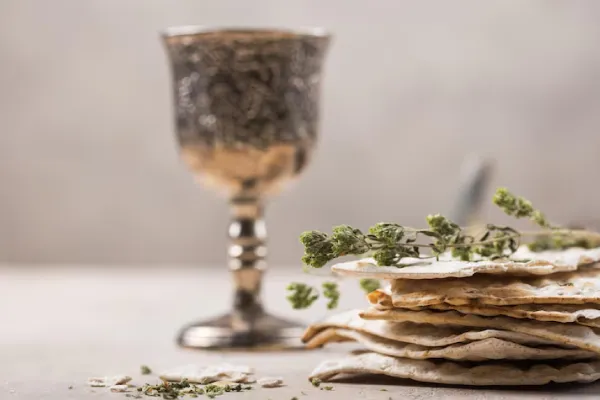
Passover
Don’t worry—this isn’t scary!
It’s just about Passover and a lesser-known Jewish tradition called Mussar that might give you a fresh way of looking at things.
So, if you’re still reading—amazing! I want to share something that really struck me. Passover, from a healing perspective, is kind of brilliant. The Seder is this beautifully organized, step-by-step ritual that invites us to talk about—and even relive—our collective trauma. Why? So we can start to make sense of it. It’s not just history. It’s a process of reflection, growth, and, hopefully, healing.
Now, on to Mussar. Mussar is a down-to-earth practice of tending to inner virtue that came out of 19th-century Lithuania. Mussar is grounded in Jewish ethics, but it isn’t so much about following rules as it is about cultivating character traits like patience, gratitude, kindness, enthusiasm, and honesty. The goal? Some would say to become “more holy,” though I prefer to think of Mussar as a process of becoming more connected to our higher selves—the parts of us that are compassionate, curious, and courageous.
Three words can be yours.
Clarity. Courage. Commitment.
Click here to sign up for a 90 Minute Breakthrough Session with Angie
When I first started learning about Mussar, I immediately noticed how much it reminded me of Internal Family Systems (IFS) therapy. For example, one Mussar teacher points out that the telling of the Passover story starts with a curious question: “What makes this night different from all other nights?” That inquiry invites us to pause and reflect—on our past, on what’s changed, and on the possibility of growth. It’s a simple but powerful way to build empathy and deepen our self-awareness.
Another Mussar teacher sees the four sons in the Haggadah not as four different kids, but as four different parts of ourselves. We each carry wisdom, rebellion, simplicity, and confusion. At different times, different parts of us show up. And even when we feel the most lost or disconnected, transformation is still possible—if we bring our full selves into the process.
So here’s the takeaway:
Passover isn’t just a ritual—it’s an invitation to reflect, to heal, and to grow. And Mussar gives us some gentle, wise tools to help us do just that. Together, they remind us that we’re never stuck where we are. There’s always room for change, always room for compassion, and always a path—however small—toward wholeness.
I look forward to being in touch with spring!
Warm regards,

P.S. Are you interested in diving deep and learning about the different parts of you? Click here to sign up for a 90 Minute Breakthrough Session with me.
